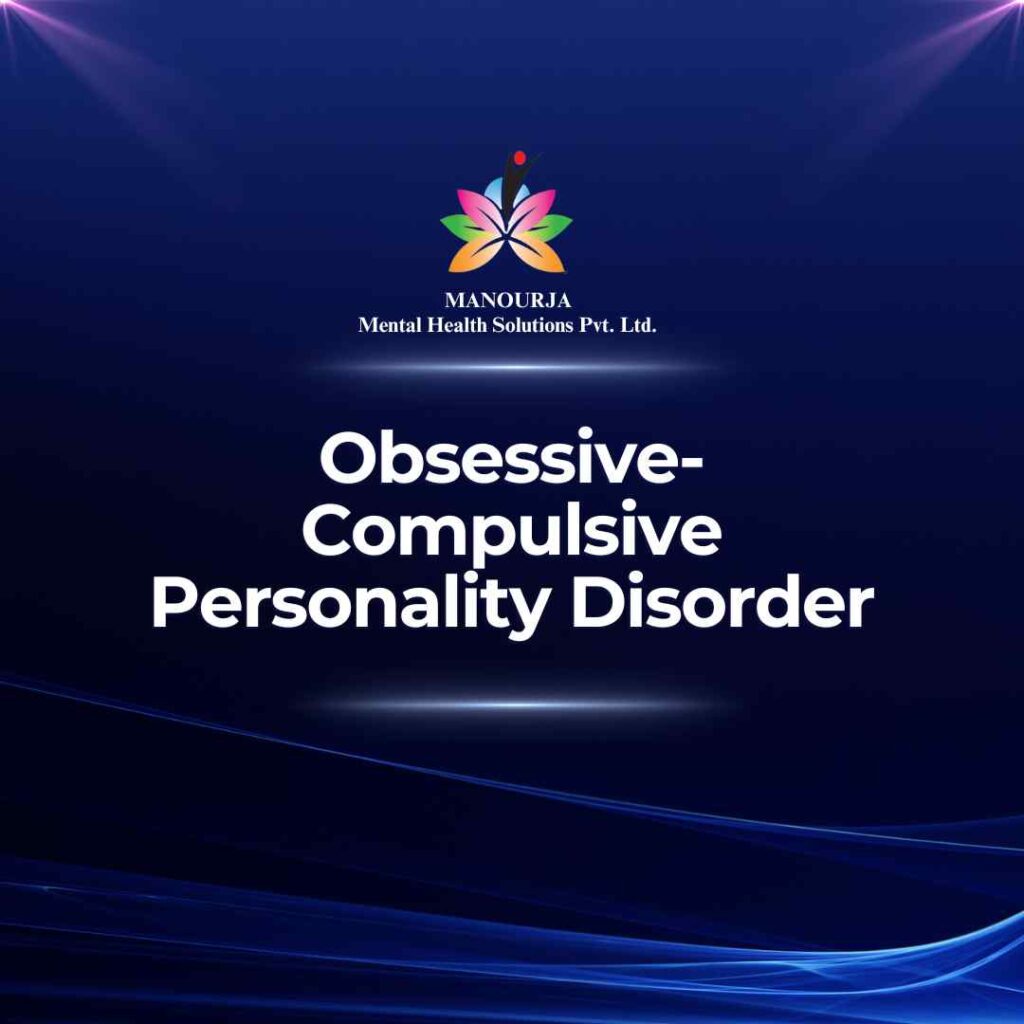Obsessive-Compulsive Personality Disorder

Obsessive-Compulsive Personality Disorder (OCPD) is a mental health condition characterized by a chronic preoccupation with orderliness, perfectionism, and control of self and situations at the expense of flexibility, openness, and efficiency. This condition is classified under Cluster C of the personality disorders in the Diagnostic and Statistical Manual of Mental Disorders (DSM-5), which includes disorders that are often described as anxious or fearful.
Symptoms of Obsessive-Compulsive Personality Disorder
- Preoccupation with Details, Rules, Lists, Order, Organization, or Schedules: Individuals with OCPD are excessively focused on details and rules, to the extent that the major point of the activity is lost.
- Perfectionism that Interferes with Task Completion: They are unable to complete tasks because their own overly strict standards are not met. This perfectionism may prevent them from completing projects, as they can become fixated on achieving perfection in every single detail.
- Excessive Devotion to Work and Productivity to the Exclusion of Leisure Activities and Friendships: People with OCPD are often excessively dedicated to work and productivity. Their dedication to completing tasks makes it difficult to take time off or to enjoy leisure activities or friendships.
- Overconscientious, Scrupulous, and Inflexible About Matters of Morality, Ethics, or Values: They may rigidly adhere to a set of rules or moral codes from which they will not deviate. This can often interfere with their ability to be pragmatic or to consider different viewpoints.
- Inability to Discard Worn-Out or Worthless Items Even When They Have No Sentimental Value: This characteristic can lead to clutter and hoarding behaviors.
- Reluctance to Delegate Tasks or to Work with Others Unless They Submit to Exactly His or Her Way of Doing Things: Due to their need for control, individuals with OCPD are often unwilling to delegate unless others conform precisely to their methods.
- Miserliness Toward Both Self and Others: Money is often seen as something to be hoarded for future catastrophes.
- Rigidity and Stubbornness: They may be stubbornly adherent to their own ideas and methods, even when presented with evidence showing alternative viewpoints or methods.
Forms of Obsessive-Compulsive Personality Disorder
The expression of OCPD traits can range from mild to severe. In mild cases, the person might simply appear to others as a meticulous perfectionist. In more severe forms, the rigidity and inflexibility can interfere significantly with the individual’s relationships and ability to function in social or work settings.
Treatment of Obsessive-Compulsive Personality Disorder
The treatment of OCPD primarily involves psychotherapy, with the goal of helping the individual relax their rigid standards and become more open to alternative viewpoints.
- Cognitive-Behavioral Therapy (CBT): Helps patients identify and challenge the dysfunctional beliefs related to their need for perfection and control, and develop more flexible attitudes and behaviors.
- Psychodynamic Therapy: Focuses on exploring underlying emotional conflicts driving the obsessive-compulsive behavior, such as unresolved feelings of inadequacy or fear of uncertainty.
Group Therapy: Can be helpful by providing a social feedback mechanism from peers who share similar traits and struggles.
Medication: While there are no medications specifically approved for treating OCPD, medications might be used to treat co-occurring symptoms such as depression or anxiety, often present with this disorder.
Conclusion
Obsessive-Compulsive Personality Disorder can be a challenging condition that affects many areas of an individual’s life. However, with appropriate treatment, including psychotherapy and potentially medication, individuals can learn to mitigate the symptoms of OCPD, leading to better personal and professional relationships and an improved quality of life.
At MANOURJA, we believe in the transformative power of counseling. Our experienced therapists offer a safe and supportive space where you can explore your thoughts, emotions, and challenges. Through personalized counselling sessions, we’ll work together to develop coping strategies, build resilience, and achieve lasting positive change. Discover the path to a healthier, happier you with MANOURJA counselling services.
MANOURJA Rehabilitation Services
At MANOURJA, we’re dedicated to helping you in rebuild your life, after difficult times. Our rehabilitation services focus on understanding what you need to move forward, whether you’re recovering from addiction, trauma, or any psychological – social challenges. We create personalized plans, that are all about helping you, regain your strength and find hope again. With a caring team by your side, you’ll have the support to make real progress and take steps toward a brighter, healthier future
